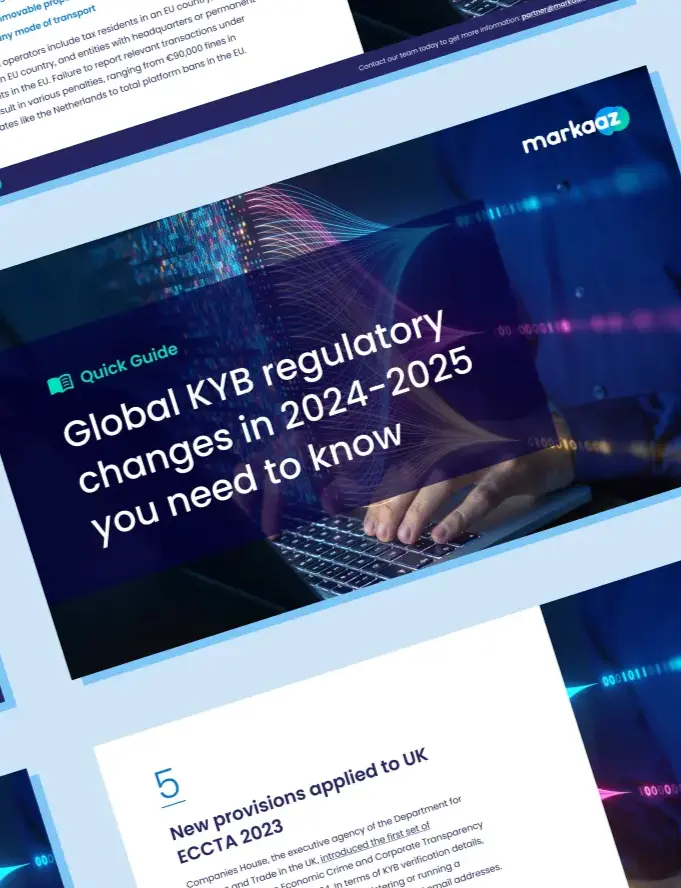In the past year, supply chain challenges have been at the forefront of public attention
From the scarcity of essential medical supplies and disinfectant products to toilet paper and rental cars, it seems that everyone has been affected by supply chain shortages to some extent.
Small businesses, however, have felt the sting of supply chain problems more than most. In response to these challenges, the business world has been making some significant adjustments, such as how to choose suppliers.
Below is a look at five trends in supplier verification your small business will likely encounter in 2021 and beyond.
Trend #1: New supplier relationships are in demand
The coronavirus pandemic was a disaster for countless supply chains. In the United States alone, 200,000 extra businesses closed during the first year of the pandemic. Over half of small businesses (52%, to be precise) have been compelled to re-verify their supplier’s thanks to the COVID-19 crisis.
Finding new and dependable suppliers remains pressing for many small businesses that have weathered the storm thus far. 22% of small businesses state that finding suppliers is their biggest challenge.
Yet, despite the importance of finding and contracting with new suppliers, many small businesses struggle with limited resources that make it harder to get the job done. Without the right technology, the initial supplier verification process could take 40 hours or more to complete for a small company.
Not knowing where to turn, 40% of small businesses rely on desktop research (such as Google searches) to vet potential suppliers. Another 33% of small businesses use a partner’s existing database to verify suppliers. However, these strategies are unreliable and can open businesses up to scams and fraud.
Trend #2: Supplier monitoring is more critical than ever
In light of the pandemic, ongoing supplier monitoring is more critical than before. And more small businesses are beginning to recognize its importance.
Effective supplier monitoring can help small businesses:
- Remain compliant with government regulations surrounding supply chains.
- Avoid costly surprises if an existing vendor becomes unstable or closes its doors.
- Evaluate the performance of vendors to improve supply chain performance.
Of course, developing strong supplier relationships with existing vendors is still wise. Yet even if you feel great about the suppliers your company has contracted with, you still need to keep tabs on the stability of third-party vendors to protect every mile of your supply chain.
Trend #3: Supplier diversity is making a comeback
Supplier consolidation indeed has its benefits. When your small business develops strong supplier relationships with a core group of critical vendors, you may be able to:
- Reduce administrative costs
- Save on shipping
- Secure discounts on high-volume purchase orders
- And more
Because of these potential perks, many businesses opted to hone down their list of suppliers in previous years. But there’s a downside to working with fewer suppliers as well, and it has to do with the level of risk it places on your supply chain. The COVID-19 crisis has highlighted these risks.
When your small business works with a smaller number of suppliers, it’s more vulnerable when disruptions occur. For example, if a key supplier goes out of business or has trouble keeping your business stocked with the raw materials it needs, your entire supply chain could suffer as a consequence.
Many small business owners are moving toward establishing relationships with additional suppliers to decrease their supply chain vulnerability in response to the past year’s events. At the very least, it is a good idea to have a list of verified backup suppliers already in place. These provisions may enable your company to react quickly in the event of supply chain shortages or other problems.
Trend #4: Supplier fraud is evolving.
Small businesses have faced severe threats in the form of supplier fraud for many years. Unfortunately, supplier and vendor fraud occurrences are rising, and scammers’ tactics to take advantage of small businesses are also ever-evolving.
David Carpentier, Co-Founder and CEO of Assurely says, “One of the biggest challenges brought by COVID-19 is that we’re increasingly interacting online with new suppliers and vendors, and we don’t know if they are real, if they are going to deliver or not.”
This reality that Carpentier describes is a story that resonates with many small businesses. Because of the prevalence of supplier fraud, finding and onboarding new suppliers you can trust is difficult.
However, Carpentier’s business has found a solution with Markaaz and its leading-edge technology to avoid supplier fraud before it starts. That leads us to the fifth and final supplier verification trend below.
Trend #5: Technology advances solve challenges for small business owners.
Small businesses are no strangers to technology. On the contrary, small business owners and managers are drowning in point-to-point software solutions. The average small business uses more than 20-point solutions to manage its supply chain, cybersecurity, accounting, cash flow, and more.
The pandemic has forced many companies to adapt to survive. It’s also created a demand for better technology that small businesses can rely on to compete in a global marketplace.
Markaaz has created a network of more than 100 million small businesses—and growing. The platform aims to give small businesses the tools they need to keep up with all four supplier verification trends above:
- Finding new supplier relationships
- Monitoring existing supplier relationships
- Diversifying vendors
- Safeguarding against supplier fraud
Markaaz empowers small businesses to be agile in an age where supply chain challenges are exceedingly common.
Hany Fam, Founder and CEO, Markaaz
About the author: Hany Fam is the founder and CEO of Markaaz and a transformational leader with a track record of building global platforms and businesses. He is an Official Member of the Forbes Business Council and a Member of The World Economic Forum’s Global Innovators. Fam is focused on creating a positive and sustainable impact for small business owners through the world’s first global platform to verify and connect small businesses and the network of partners that support them. Prior to founding Markaaz, Fam held global leadership roles in business transformation, value creation, and technology, gaining depth of experience in payments, B2B platforms, enterprise partnerships, and SaaS. He served as CEO of AXA Global Enterprise & Partnerships, Founder & President of Mastercard Enterprise Partnerships, and President of Mastercard UK & Ireland Markets. He also held roles in Applied Technology, including as the CTO of Toshiba International’s Heavy Industrial business in Australasia. Under Fam’s leadership, Mastercard Track was launched, the first and only global trading platform connecting every supplier and buyer on the planet to simplify and automate the exchange of payments and related data.




